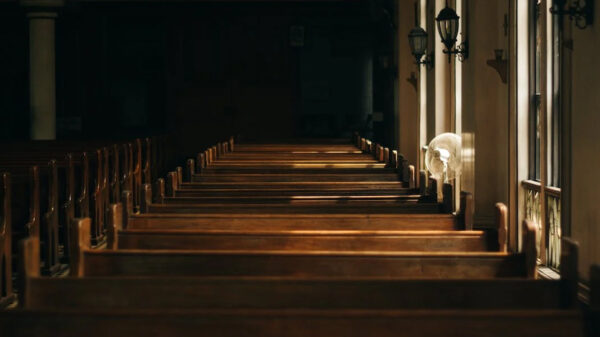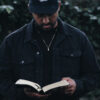
We believe in God the Father. We believe in Jesus Christ. We believe in the Holy Spirit and that He’s given us new life. We believe in the crucifixion. We believe that He conquered death. We believe in the resurrection and that He’s coming back again. We believe. So, why do we believe? Should we believe? Is the New Testament even reliable?
Most people recognize that the New Testament is used by Christians as a historical account and the basis of their faith. Some people believe that the New Testament accounts are reliable. Conversely, others do not believe that the New Testament accounts are reliable. As described by J. Warner Wallace, author of Cold-Case Christianity, there are strategic methods of investigation used to determine whether the facts of a case are reliable. For the purpose of this paper, the case or the issue, is whether or not the New Testament accounts are reliable. According to these methods, the New Testament accounts are reliable for three reasons: the writers lived early enough in the First Century to be true eyewitnesses of the events described; the testimonies given were verified by outside sources and evidence and were not corrupted over time; and the motives possessed by the authors were not biased.
The first piece of evidence supporting that the New Testament accounts are reliable is that the writers lived early enough in the First Century to be true eyewitnesses of the events described. Known historical events were not depicted in the writings because they had not yet happened. For example, the siege of Jerusalem in AD 67-70 and the destruction of the Temple in AD 70 were not mentioned in the New Testament because they had not occurred. The deaths of Jesus’ early followers were also not recorded because they were still living. For instance, the deaths of James, Peter, and Paul were not until AD 61-65. Paul’s letters, written between AD 53-57, directly referenced the Gospels, which means they had already been written. He referenced Mark’s gospel, which was written in AD 45-50 and Luke’s gospel, which was written in AD 50-53. All this evidence supports that the New Testament accounts were written close to the time and events that they describe. Substantial evidence that the authors lived during the time of Christ makes them powerful eyewitnesses.
Secondly, the testimonies given in the New Testament were verified by outside sources and evidence and were not corrupted over time. Archaeological findings and writings from early, external, non-Christians gave detailed descriptions of the life, death, and resurrection of Jesus. Some of these non-Christian historians included Josephus, Thallus, Tacitus, Mara Bar-Serapion, and Phlegon. It is powerful to note that even non-followers and those who didn’t necessarily believe that Jesus was the Son of God provided documentation that Jesus lived in Judea, was a virtuous man, had wondrous powers, predicted the future, was the wise “King of the Jews”, was accused by Jewish leaders, and crucified by Pilate during the reign of Tiberius Caesar. They also described darkness and an earthquake that covered the land at the time of the crucifixion. Furthermore, these same non-believers stated that Jesus reportedly rose after death, was believed to be the Messiah, and was called the “Christ”. Supporting that the New Testament accounts were not corrupted over time, the students of the original apostles consistently echoed the same message even though they were spread out geographically. Moreover, true to the Jewish tradition, scribes were known for meticulously copying the Scriptures. For example, the Dead Sea Scrolls were found in caves in 1947. There were fragments of almost every book of the Old Testament and a complete copy of Isaiah in these scrolls. When the scroll of Isaiah was compared the book that we now have, 95% was word-for-word and the other 5% were simply some spelling differences and sometimes the presence of the word “and”. None of these differences changed the meaning of the Old Testament Scriptures at all. There is no reason to believe that the writers of the New Testament would not use these same methods for copying their work and passing it down to their students. It is clear that the New Testament accounts were verified by outside sources and were not corrupted over time.
Finally, the motives possessed by the authors of the New Testament accounts were not biased. We are all motivated do to the things we do, whether that be for good or for evil. Some of the prime motivations for anyone to take action include: financial greed, pursuit of power, and self-protection. The apostles were not driven by financial greed, as evidenced by the fact that they abandoned all of their earthly possessions to follow Jesus in the hope of finding the treasures of Heaven instead. The authors of the New Testament were also not driven by the pursuit of power. Indeed, their status in the Jewish community was crushed considerably, leaving them outcasts according to Jewish elite, like the Pharisees. Similarly, there is no evidence to support that the writers were concerned with self-preservation. In fact, none of the apostles recanted their testimony, even to save their lives. The evidence supports that the motives of the New Testament writers were pure.
Despite these facts, the opposing side will try to convince you that the New Testament accounts are not reliable. They try to prove this by suggesting that the Gospels were written late, meaning they were not written when the true eyewitness were alive. Therefore, they claim that they are a lie, saying that the Gospels were penned in the Second or Third Centuries. Furthermore, skeptics proclaim that the Gospels were written much closer to the establishment of Christianity in the Roman Empire than to the life of Jesus.
These suggested explanations are inadequate because there is substantial evidence that the historical events described in the New Testament all happened in the First Century and were actually written about by true eyewitnesses in that same time period.
Others may deny the reliability of the New Testament accounts, saying that because Mark’s account seemed to be written in a hurry, it is not correct. Because the facts are brief and jumbled, some may think they cannot be trusted. There could also be concerns that Mark’s sense of urgency in his writing could have led to inaccuracy of the facts.
This proof against the reliability of the New Testament accounts is inadequate because it is plausible that Mark put together the facts quickly because he wanted to world to know about the life of Jesus before it was too late. For all he knew, Jesus would return before there would be any need for an ordered biography of sorts. Mark wrote almost word-for-word what his teacher, Peter, who had been a direct eyewitness, said. Mark was very careful and unlikely to have written any false accounts. The accuracy was simply more important to Mark than an ordered description.
The opposing side alleges to have accurate and reliable evidence to disprove the reliability of the New Testament; however, there are clear ways to refute their claims.
The New Testament accounts are reliable. We know this because the writers lived early enough in the First Century to be true eyewitnesses of the events described. The testimonies given were also verified by outside sources and evidence and were not corrupted over time. Finally, the motives possessed by the authors were not biased.
The reliability of the New Testament accounts matters to Christians. As stated by J Warner Wallace, “While we are often willing to spend time reading the Bible, praying, or participating in church programs and services, few of us recognize the importance of becoming good Christian case makers.” Now that we are able to make a case, based on evidence, to strongly support the New Testament’s reliability, we need to use this knowledge to defend our faith.
(Reference: Wallace, J Warner. Cold-Case Christianity. David C Cook, Colorado Springs, 2013. Lyrics: We Believe by the Newsboys)
At 13, Annie is already well equipped to defend the truth. When I got her letter, I thought, “This is why I wrote Cold-Case Christianity, and this is why I’m so glad we had the opportunity to write Cold-Case Christianity for Kids.” Let’s encourage our young people to raise the bar and make the case for Christ.

J. Warner Wallace is a Dateline featured Cold-Case Detective, Senior Fellow at the Colson Center for Christian Worldview, Adj. Professor of Christian Apologetics at Talbot School of Theology, Biola University, author of Cold-Case Christianity, God’s Crime Scene, and Forensic Faith, and creator of the Case Makers Academy for kids.
Subscribe to J. Warner’s Daily Email
Save
Save
Save
Save
Save
Save
J. Warner Wallace is a Dateline featured cold-case homicide detective, popular national speaker and best-selling author. He continues to consult on cold-case investigations while serving as a Senior Fellow at the Colson Center for Christian Worldview. He is also an Adj. Professor of Christian Apologetics at Talbot School of Theology, Biola University, and a faculty member at Summit Ministries. He holds a BA in Design (from CSULB), an MA in Architecture (from UCLA), and an MA in Theological Studies (from Gateway Seminary).









































